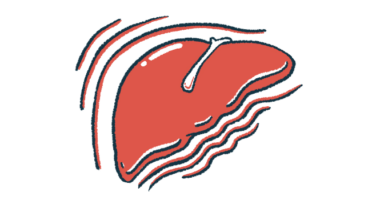Kaftrio may cut time patients spend on respiratory physiotherapy
CF patients report saving 15 minutes a day of 'time-consuming' therapy: Study

Treatment with Kaftrio (elexacaftor, tezacaftor, and ivacaftor), sold as Trikafta in the U.S., may save people with cystic fibrosis (CF) an average of 15 minutes each day of respiratory physiotherapy to help with breathing, a study has found.
The study, “Perceived burden of respiratory physiotherapy in people with cystic fibrosis taking elexacaftor–tezacaftor–ivacaftor combination: a 1-year observational study,” was published in Therapeutic Advances in Respiratory Disease.
In CF, mucus produced by the lungs is stickier than normal, making it more likely for patients to develop an infection and to experience difficulty breathing. Along with medication, physiotherapy can help clear excess mucus from the lungs.
Daily respiratory physiotherapy ‘most challenging part of managing’ CF
However, “people with cystic fibrosis typically do daily respiratory physiotherapy, which they find to be the most challenging part of managing their condition,” the Italy-based researchers wrote.
A CFTR modulator, Kaftrio has been shown in multiple studies to result in better lung function and structure, thinning airway walls and clearing the mucus plugs that often block airflow.
However, it’s not known whether Kaftrio may reduce the frequency of respiratory physiotherapy. To know more, the researchers watched for changes in the perceived burden of respiratory physiotherapy after one year of treatment.
The study included 47 people with CF, mean age of 21.4 years, who completed one year of treatment with Kaftrio. Fourteen (29.8%) were younger than 18. Before starting Kaftrio and again at 6-12 months into treatment, patients or their caregivers filled out questionnaires exploring disease-related symptoms, social limitations, and physical activity.
Before treatment, the patients spent an average 66.7 minutes (just over one hour) each day on airway clearance therapy. Most (80.9%) used positive expiratory pressure (PEP) mask breathing to help clear excess mucus from the lungs.
Half (50%) performed aerosol therapy 2 to 3 times a day for a total average perceived time of 57.4 minutes. Cleaning and disinfecting respiratory equipment took up to 30 minutes each day, according to the patients or their caregivers.
Less time reported on respiratory physiotherapy after 6 months of Kaftrio
After six months of treatment with Kaftrio, as well as after 12 months, patients considered that they spent less time on aerosol therapy, airway clearance, and cleaning and disinfecting respiratory equipment than before treatment.
The largest difference perceived by patients was a reduction of nearly 18 minutes a day in the time engaged in aerosol therapy. At 12 months into treatment with Kaftrio, five (10.6%) patients had stopped using a PEP mask, and none used it more than twice a day.
Consistent with previous studies, patients also reported fewer or less severe symptoms of CF. In addition, they increased the time spent engaging in physical activity each week.
“Our findings indicate improved health and lower treatment burden in [people with CF] following therapy, together with less time engaged in [respiratory physiotherapy],” the researchers wrote. “By the end of the year, they were saving almost 15 minutes per day on average.“
However, after 12 months, aerosol therapy, airway clearance, and cleaning and disinfecting respiratory equipment still took up time (31, 49.8, and 13.5 minutes a day, respectively) for patients, who considered the activities “time-consuming.”
The findings highlight the benefits of Kaftrio in reducing the perceived burden of respiratory physiotherapy for people with CF, but also underscores the ongoing challenges they face in managing their disease, the researchers concluded.








